Reviews
Robin Hardy
UK, 1973
Credits
Review by Megan Weireter
Posted on 20 October 2007
Source Anchor Bay DVD (Director’s Cut)
Categories 31 Days of Horror
I think I could turn and live with animals, they are so placid and self-contained,
I stand and look at them sometimes half the day long.They do not sweat and whine about their condition,
They do not lie awake in the dark and weep for their sins,
They do not make me sick discussing their duty to God,
No one is dissatisfied, not one is demented with the mania of owning things,
Not one kneels to another, nor to his kind that lived thousands of years ago,
Not one is respectable or industrious over the whole earth.
—Walt Whitman
You’ve never seen a place as beautiful and as rotten at the core as Summerisle, the remote island off an unspecified coast of Scotland where The Wicker Man is so lovingly filmed. It’s a dream world full to bursting with radiance and fertility. It’s an Avalon that’s travelled through the mists of time to the present and become hideously twisted along the way.
Or maybe it’s just a hick little heathen island that exports good apples and is suddenly missing a young girl. At least that’s all Sergeant Neil Howie needs to know before setting out from the mainland to try to find the girl. It’s a mystery that will defy him at every turn even as it slowly opens up the strange world of the islanders’ faith.
Howie approaches Summerisle from the air, and we see it as he does, emerging from the sea in ragged marshy islets leading up to the limestone cliffs that keep the fields and farmhouses behind them, hidden from the prying eyes of the mainland. He immediately gets to work, showing the islanders the photo he has of little Rowan Morrison, the missing girl. What’s strange is that no one recognizes her. Even Mrs. Morrison, apparently her mother, swears she’s never seen the girl in the picture before. Howie, undaunted and convinced of his own rightness, nevertheless perseveres, growing ever more frustrated with the treatment he receives from the islanders. It’s clear that Howie is accustomed to a level of deference that simply doesn’t exist here.
Neil Howie is established from the start as the dour, humorless epitome of a red-blooded Christian cop. Even his stride is all lion-hearted righteous bluster. He’s not just pure, he’s smug, and he’s hostile to anyone who’s not as good a Christian as he considers himself to be—which is pretty much everyone. It’s hard not to dislike him. And it’s easy to laugh at his visible distaste with the villagers’ innocent baudy songs, dancing on Sundays, and so forth. His horror increases as he realizes that the islanders actually aren’t Christian, but in fact worship the old gods of pre-Christian Celtic times. As he becomes more and more overcome with disgust, he begins to consider the entire island a criminal element, which makes it difficult for him to do his job effectively and maintain his composure. The search for Rowan Morrison becomes more than a standard investigation—it becomes a quest to rescue her very soul from a culture that he believes will spiritually destroy her.
Along the way Howie has a few memorable encounters with the islanders’ leader, Lord Summerisle, played with great relish by Christopher Lee. Lord Summerisle’s residence looks much different from every other structure on the island—it carries the weightiness we expect of a grand English country home back in the Judeo-Christian world, even as directly outside his window naked women perform fire-jumping rites. The backstory he tells us is one of the less interesting moments in the film - we’d almost rather not know why paganism has survived on this island, just enjoy the strange fact that it has - but his revelations do ultimately darken the shadow of what will happen in the end.
The islanders don’t appear to be in much of a hurry about anything, and neither does the film. The first third of the film in particular has a lovely dream-like quality to it, though the pace picks up as the filmmakers strive to show exactly how weird the islanders are in as expedient a way as possible. The mystery of what happened to Rowan gets increasingly baffling as the islanders’ stories become less comprehensible and more unsettling. What I think The Wicker Man does very well is maintain this bubble of vague disquiet, stretching and stretching it out over many scenes, without a whole lot of action, before letting it pop in as dramatic a way as possible at the infamous devastating conclusion. It’s a marvelous structure for a horror film—all the surprise, fear, and dread are packed into the ending, which wouldn’t have been so effective if not for the buildup of everything that came before.
As the people’s actions become more and more strange, the viewer’s tolerance is further challenged; that is, with every passing scene the islanders’ paganism becomes a little less adorable. And the immorality we finally recognize in the religion of Summerisle is abhorrent. But Howie is hardly an effective force of morality, either. His Christianity is without depth, for behind his bluster is nothing but quasi-Victorian delicacy and an almost physical revulsion at the impure world outside his own soul—his trademark petulant hostility could hardly be called Christ-like. He is accustomed to relying on the bulwark of a Christian government and a Christian society to justify himself, and when he must stand alone without it, he’s rendered feeble. Though his faith never leaves him, it does fail him. His final desperate scenes are horrifying precisely because they show so nakedly what it’s like to be abandoned by God. According to the film, it’s that abandonment - the ultimate abandonment - that’s in store for whoever trusts to such blind, immovable faith.
The Wicker Man is not a simple denouncement of religion, though. The island’s pagan culture - not just the incidental song and dance, but the formal rituals of the Maypole and the parade of masked characters - is handled too affectionately for me to believe that the film wants to write it all off. Even Christian ritual is shown quite movingly, as in the early brief scenes of Howie taking communion in his home church, or Howie desperately forming a crude cross from scraps of wood and laying it on a grave just to leave some small mark of the Christian God there to protect the dead. I don’t think we are to take away that all of this is in service of evil, or is just useless. Rather, the film resonates with a sadness that we as a species can’t live up to the beauty of our rituals, our music, our poetry—that all this has no bearing on the fact that we are an immoral scourge on the earth. Everyone is so full of faith, and still they can’t be bothered to just be nice to everyone else. The outlook for humanity is bleak.
Lord Summerisle quotes Whitman on the more perfect lives of animals, but intentionally omits a few lines, including the line “Not one kneels to another, nor to his kind that lived thousands of years ago.” This is a telling omission, for Lord Summerisle is a dictator over the islanders, steering them toward the more sinister elements of their faith. He might have convinced himself that his rule frees them from the constraints of mainstream Christian life, but of course their souls remain stained with their own humanity.
I hate to have gone on this long without mentioning the music, which is so integral to the mood of The Wicker Man. Though a few of the songs sound dated, most of the music - an amalgamation of original and folk material compiled by Peter Giovanni - is so memorable that it’s what stays with you when the rest of the film has been forgotten. For a film that’s most easily described as a mystery, The Wicker Man is much like a dream, albeit the kind of dream that steadily gets worse until you wake up in a cold sweat. Still, though, long after the details of the plot elude you, you might find yourself daydreaming of the bagpipe’s drone, the little girls banging pencils on their desks, the pub full of people mournfully strumming, the naked blonde singing to the praying policeman on the other side of the wall, and the sound of the drums - and your own heart in your ears - as the wicker man crests forebodingly over the hill.
More 31 Days of Horror
-

Alien
1979 -
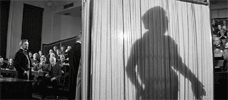
The Elephant Man
1980 -

My Bloody Valentine
1981 -

Who Can Kill a Child?
1976 -

Cannibal Holocaust
1980 -

Let Sleeping Corpses Lie
1974 -

John Carpenter’s Vampires
1998 -

Jaws 2
1978 -

A Warning to the Curious
1972 -
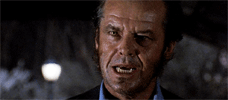
Wolf
1994 -

The Survivor
1981 -

Cannibal Ferox
1981 -
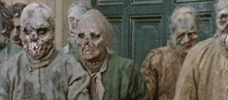
The Nights of Terror
1981 -
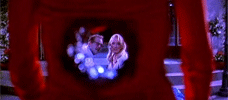
Death Becomes Her
1992 -

Alice, Sweet Alice
1976 -

Body Double
1984 -

Invocation of My Demon Brother
1969 -
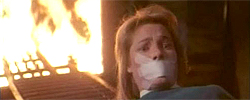
Phantasm II
1988 -

Emanuelle and the Last Cannibals
1977 -

The Wicker Man
1973 -

Maniac Cop
1988 -
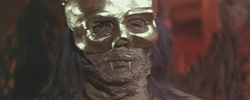
The Legend of the 7 Golden Vampires
1974 -
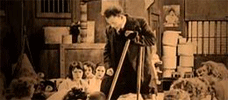
The Penalty
1920 -

Boxing Helena
1993 -

Chew on This
2005 -

Night of the Creeps
1986 -

Night of the Lepus
1972 -

Near Dark
1987 -

Army of Darkness
1992 -

The Brood
1979 -

The Lift
1983 -

Amsterdamned
1988 -

Silent Witness
1999 -

The Shaft
2001
We don’t do comments anymore, but you may contact us here or find us on Twitter or Facebook.



